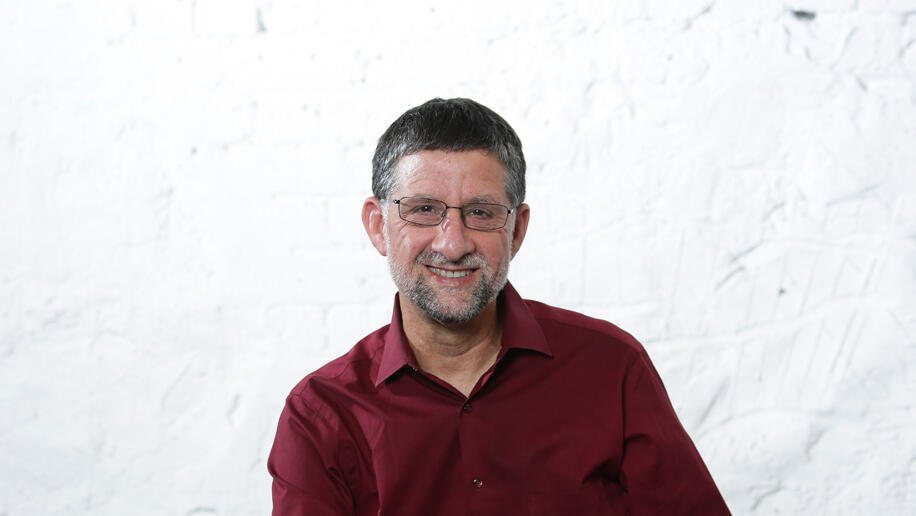
Autonomous vehicle vision edging closer to reality with verification by Israel's Foretellix
As ADAS becomes standard, Israeli autonomous car tester is spoiled for customers, even during Covid-19
Foretellix develops intelligent automation and analytic tools to generate and monitor hundreds of millions of driving scenarios to tackle the challenge of safety in ADAS (advanced driver-assistance systems) and autonomous vehicle deployment. Foretellix essentially enables measurable safety of autonomous vehicles by making a transition from the initial industry-standard measuring the number of kilometers the vehicle has driven to the ability to automatically test and cover billions of possible scenarios before the vehicle goes on the road.
The company, which currently employs around 60 people, mainly in Israel, has raised over $17 million since it was founded in 2018, $2 million in a seed round in early 2018 and $15 million in a round A series, led by 83North, Jump Capital, Nextgear Ventures and OurCrowd, at the start of 2019. Hollander serves as the company's CTO, with Binyamini the CEO and Amid the Chief Regulatory Affairs Officer and VP Operations.
"Autonomous vehicles and autonomous systems, in general, are the future. It is only a matter of time until they arrive. But the complexity of the autonomous system is huge," Binyamini told CTech. "An autonomous vehicle is probably the most complex device that humans have so far tried to produce. The vehicle itself has hundreds of millions of lines of software code. A typical autonomous vehicle has more than 70 different chips and several machine learning subsystems. It is an incredibly complex device and the more complex the device the more difficult it is to make sure that it works in different situations and scenarios. This is further complicated by safety concerns."
Humans like pedestrians and other drivers make the reality very unpredictable for an autonomous vehicle, and there are also many changing variables like weather, lighting, or road curvature to account for.
"The number of scenarios you need to think of and test before you know it is safe is huge," noted Binyamini. "It is millions and billions if you are talking about Level 4 of autonomy (fully autonomous driving, although a human driver can still request control). Humans can't even think about so many situations, but you have to test all of them because this is not a smartphone that if there is a mistake it is no big deal and you just reboot. If a car makes a little mistake it can kill people. With such huge complexity and such a huge cost in the case of a failure, you need a different methodlogy and a different system."
Binyamini explained that there was a similar situation in the chip industry 20 years ago and that all the big chip manufacturers ended up adopting the method that was invented at Verisity.
"We thought that autonomous driving has a similar huge problem. In fact, safety and the ability to sufficiently test the cars is what is preventing them from being deployed today. Our idea is that we can bring the same methods and concepts to this domain and provide a solution to this problem because we have done it before," said Binyamini.
There are essentially three parts to the Foretellix solution. "We have a way to describe scenarios, we have automation to generate many different tests and we collect information and show you a scorecard on how well the car is behaving and how well you are doing in terms of testing," explained Binyamini.
The way of describing scenarios is named the Foretellix Measurable Scenario Description Language (M-SDL). This is an open, human-readable, high-level language that allows simplifying the capture, reuse, and sharing of driving scenarios and easily specify any mix of scenarios and operating conditions to identify previously unknown hazardous core and edge cases. M-SDL has been adopted as the main concept found in the development of an upcoming industry standard – OpenSCENARIO 2.0.
Binyamini said there are numerous examples of scenarios in which car manufacturers could have benefitted from Foretellix's solution, including from earlier this year when Volvo recalled 750,000 cars over a fault in its autonomous emergency braking system.
"Volvo had a tiny problem in its autonomous emergency braking system. It is an ADAS feature that basically warns a driver if there is anything on the road that requires the car to slow down and if the human driver doesn't act quickly the automatic system kicks in and hits the brakes and stops the car to avoid a collision," said Binyamini. "This kind of automatization is already part of many models and is becoming a standard. Volvo found a tiny bug that in certain temperatures the system doesn't kick in. They had to recall all of their 2019 and 2020 models. The cost of this single tiny bug for Volvo was hundreds of millions of dollars just for the recall and lost sales. This is a tiny example in one of the simplest ADAS functions. If they would have used our system there is a very high likelihood that they could have found the problem much earlier before they deployed the system and fixed it. We reduce the risk of having these kinds of failures."
There is no doubt that the car industry has sustained a massive hit due to the Covid-19 crisis, but Binyamini said that Foretellix hasn't suffered accordingly, and not just because of the leading role played in the industry by tech giants like Google and its sister company Waymo.
"There was a slowdown but once companies started to get back to work we've seen that full Level 4 budgets are being cut while in ADAS there is absolutely no slow down. We are seeing some auto manufacturers shifting resources from Level 4 to ADAS, which is already in deployment. They have huge safety problems and any car manufacturer that will not have ADAS in their cars will just be losing the market. This is not just some future vision. This is happening today and this market is super hot," explained Binyamini.
The fact that it is harder to do physical testing during the pandemic actually plays into Foretellix's hands, according to Binyamini, as their platform monitors virtual simulators as well as test drives in the physical world.
"My concern right now is that I have too many customers that want to engage with us. My challenge is to serve this demand and be able to work with all of them. That is our number one challenge right now," said Binyamini.
"We have a great opportunity because we have a solution that can really help and be deployed easily in a virtual world during Covid-19," he added. "We had a big Tier 1 car manufacturer that approached us early this year. We closed a paid pilot by the end of March with the world already deep in the crisis and we conducted a virtual pilot on the cloud during April and May. Five engineers from the company attended the pilot and concluded that they wanted the technology. By the end of June, they acquired the first license so this is very encouraging for us. We are well set up for this new world of staying at home."
